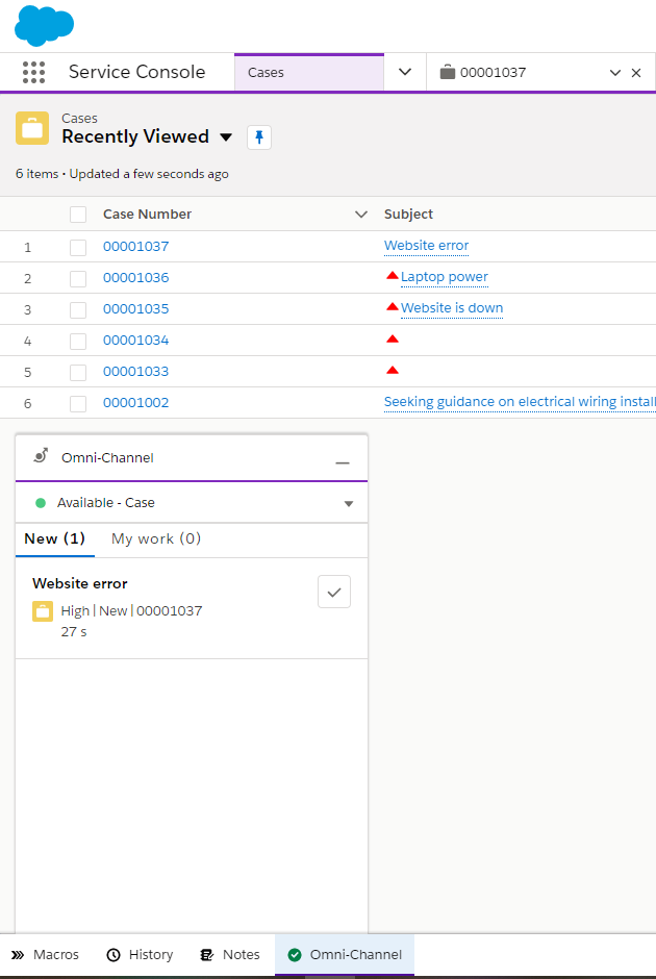Many service organizations already using Salesforce are taking advantage of the easily configured Case assignment rules and queues so that a group of agents can pick them up as they come in. This is a quick way to have a team operating around a common book of work. However, the basic functionality neglects some critical factors that can be addressed with the use of Omni-Channel routing, namely the skills, workload, and availability of each individual agent.
Skills
A common way to set up Case queues is by type. For instance, if a customer submits an online form and has an issue regarding a product, the support team would receive the Case in their queue for that specific product. But what happens if that Case also requires the assistance of someone fluent in Spanish? At this point, any agent with access to the queue might pick up the Case, realize they cannot assist, and reassign it to a Spanish-speaking individual or back to the queue. Perhaps the Spanish-speaking agent is not available or out of office. In either situation, the Case will be pending until the right person sees it, or someone escalates it.
With Skills-Based Routing, you can assign agents a variety of different skills, which will then route the Case directly to those that meet all the requirements (including availability and capacity). Rather than a separate queue, agents can access the new or pending Cases via the Omni-Channel utility. If one agent does not accept a Case, another can do so. Additionally, the utility displays Cases that an agent is actively working on.

Workload & Availability
Like chat functionality in tools such as Skype, Teams, or Slack, Omni-Channel allows you to configure statuses for your agents to designate, who are available to work on a new Case, who are busy or are at capacity, or who are away/out of office/etc. If there are no agents available or at capacity, the new Case will remain unassigned until someone with the required skills becomes ready for a new Case. If multiple agents can take on additional work, however, you can select from different routing models (Least Active/Most Available) to best suit your organization’s needs.
In addition to addressing the creation of a Case, Omni-Channel also accounts for an agent becomes available for new work. When a service user signs on at the beginning of a shift, completes work on another Case, or changes their status, there is built-in functionality to search items pending assignment and see if the agent is qualified to receive them. When multiple Cases can be routed to the newly available agent, assignment order logic is based first on priority and then on the date received.
A Quick Omni-Channel Routing Note for Supervisors
Service managers are traditionally involved at the point of Case escalation, or when there is a question that puts resolution on hold until they have time to respond. Omni-Channel introduces a much more integrated experience, where supervisors can monitor conversations and communicate with agents privately to help, all without interrupting the conversation with the customer. Finally, agents can notify their managers when they need their assistance by raising a flag, resulting in a reduction in handle time.
Have any questions about Omni-Channel, Service Cloud, or Salesforce in general? Please contact us at any time!
This publication contains general information only and Sikich is not, by means of this publication, rendering accounting, business, financial, investment, legal, tax, or any other professional advice or services. This publication is not a substitute for such professional advice or services, nor should you use it as a basis for any decision, action or omission that may affect you or your business. Before making any decision, taking any action or omitting an action that may affect you or your business, you should consult a qualified professional advisor. In addition, this publication may contain certain content generated by an artificial intelligence (AI) language model. You acknowledge that Sikich shall not be responsible for any loss sustained by you or any person who relies on this publication.









